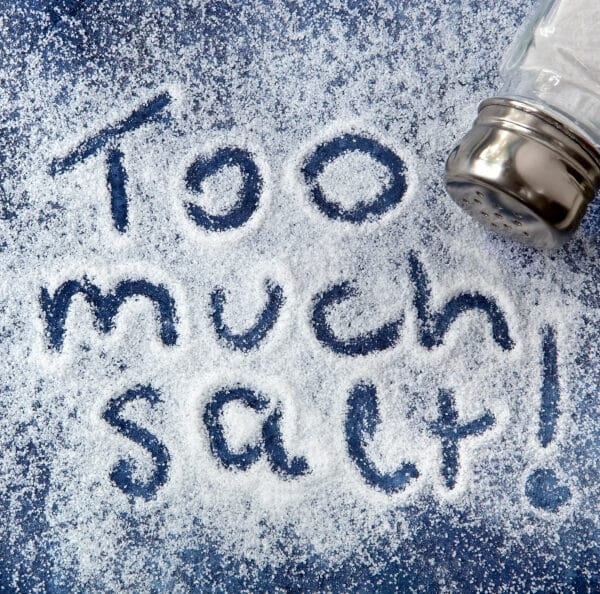
In the news this week has been the importance of recognising TIA (transient ischaemic attack) or mini-stroke. TIA causes similar symptoms to a stroke, such as speech problems, but may last only a few minutes. A survey of TIA patients found more than one in three had dismissed their symptoms as just a “funny turn”. Yet one in 20 people will have a major stroke within two days of a TIA and this figure rises to one in 12 within a week of a TIA.
Diet and stroke
So perhaps it is a good time to remind people of the importance of diet in reducing the risk of stroke, and to look at one of the main dietary factors associated with stroke – levels of salt consumption. A reduction in salt intake lowers blood pressure both in individuals with raised blood pressure and in those with normal blood pressure. The fall in blood pressure is shown across ethnicities, men and women. This in turn may reduce the risk of other cardiovascular diseases, such as stroke and heart disease.
Reducing salt may reduce risk of stroke
A recent report in the medical journal BMJ Open suggested that the 15% drop in average daily consumption of salt in England between 2003 and 2011 played a role in the decrease in the number of deaths from stroke over the same time period. The researchers commented that as well as change in salt intake and reduced blood pressure, the decrease in fatalities could be influenced by several other factors such as decrease in total cholesterol and the number of people who smoke, and the increase in fruit and vegetable consumption. It could also be influenced by improvements in medical care and treatment of blood pressure, cholesterol and cardiovascular disease.
Overall then the changes could be the result of a complex mixture of various health and lifestyle changes in people over this time. Nevertheless, the report lends support to current health recommendations to keep salt intake to no more than 6g per day for adults (around one teaspoon) to reduce the risk of high blood pressure.
Salt in the Diet
Dietary surveys show that currently the main contributors to salt intake in the older population are white bread (10%), bacon and ham (8%), soup (5%), cheese (5%) and wholemeal bread (5%). Some foods may be high in salt because of the way they are made, others contribute because we may eat a lot of them. Reduction of salt is part of a lifestyle changes for stroke reduction but controlling weight, regular physical activity and avoiding smoking and excessive consumption of alcohol are also important.
Act FAST
And don’t forget to act FAST to recognise the symptoms of stroke: fallen Face, inability to hold Arms high, slurred Speech; and to know the importance of Time — to seek immediate medical attention.






